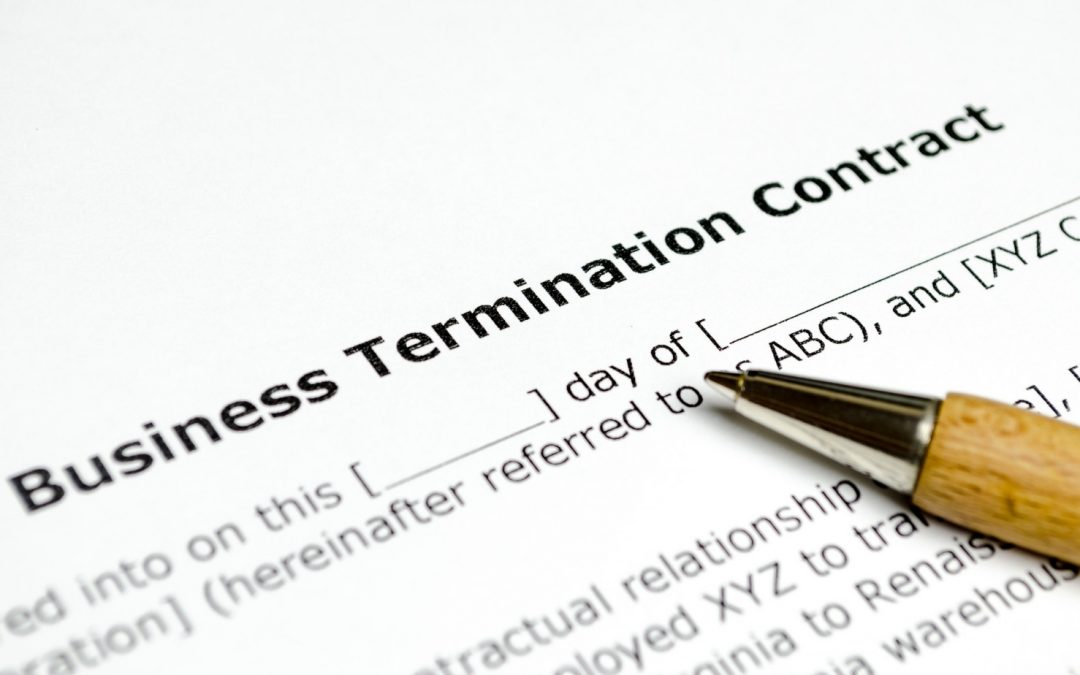


What Happens When Business Founders Want to Split Up?
What Happens When Business Founders Want to Split Up?
Business Break-ups Can Be Messy!
Unless the founders had something clear in writing beforehand, there is no end to the variety of things that can happen when founders want to go separate ways.
If there is nothing in writing and the split is not amicable, all sorts of time consuming, distracting and stressful things can happen.
Here are some of the worst-case scenarios we have seen in practice, all where there was nothing in writing to start:
1. A Founder Dies Unexpectedly
Whilst tragic at a personal level, it can also be very difficult for a business where one of the founders passes unexpectedly. Sometimes the family is aware of their business involvement, and sometimes they are not. In this case the family wanted the company to buy out the deceased founder’s interest in the business immediately and had some unrealistic expectations of what that interest was worth.
Animosity was growing between the parties due poor communications. We were able to present a strategy which allowed for the progressive buy out of the deceased founder over a two year period, without interference by the family in the business, and at an amount set by a ‘desk top’ valuation completed by the company’s accountant. The family of the deceased founder were offered the opportunity to get an independent valuation, but at their cost, and the $11,000 price tag put them off.
2. One Founder Is Stealing Money From The Business, And Another Finds Out
Unfortunately, this is not an uncommon scenario.
We’ve seen this occur in a variety of businesses from software to building and construction, and it is rarely pretty, and usually a long and slow process of separation if nothing was agreed in writing when the business was founded.
Too many people think “we don’t need a shareholder agreement, we will be fine” when they are all excited about getting started, and then when things go wrong, they have no protection.
In one example with a tech company, there were four sets of lawyers involved and the end result was a comprehensive deed of release covering the transfer of shares, forgiveness of debts, payment of money, and indemnities from the exiting partner. There were no admissions of liability in the deed. The deed took more than 15 months to negotiate and some shareholders meetings to approve decisions.
As long as the negotiations remain between the parties and their lawyers, law enforcement need not be involved. There is nothing that legally requires you to incriminate yourself or anyone else in the business. When fraud or theft is discovered and reported, it is usually through a third party.
3. A Founder Walks Away Without Notice, Making Demands
Things happen in people’s lives (like death, illness, an amazing job offer etc), and they can suddenly want out. This can be very hard on the people who want to continue with the business and a shock if not contemplated before one partner leaves. Business break ups are often referred to as like going through a divorce by the people affected.
Sometimes people want out, and they want their money, whether or not there is any owed to them at the time. Many people exiting a business think in terms of the future value of the business, rather than where it is as they exit, and vastly overestimate both what it is worth and the capacity of the other parties, or the business to pay for the exit.
If shares are to be transferred to existing business partners, then those individuals need to have the money to purchase the shares at the agreed value. In a start up phase, this is likely to be $1 a share and not onerous, but if the business has been running for a while and has some value, the remaining shareholders might not have thousands of dollars required to purchase those shares.
If the shareholder is exiting and the company is making a distribution or buying back the shares (not a simple process) then there needs to be sufficient funds in the company to pay out the exiting party.
As long as you have clarity around ownership of assets, intellectual property and a realistic value of the business, then its just a process to be undertaken when someone leaves suddenly. If there is nothing in place, then it is a process of negotiation and often heartache before a resolution can be agreed.
4. A Shareholder Stops Contributing
In situations where you have people with different skills coming together to build a business, not everyone necessarily has the same energy to keep the business on track. We’ve come across several businesses where a lot of effort was required of one party in the initial set up (for example someone building an App or a Website) and then their contribution become maintenance only. Another person in the business might be responsible for promotion, and there work is constant, requires review and reinvention, and never lets up.
An example we have is a digital business where the person responsible for service delivery got fed up with the lack of interest of the developer who originally built the website for the business. Their ongoing contribution was minimal and yet their deductions from the business stayed the same and the service deliver person felt like they were working to support two families, without any recognition.
Differing levels of effort over time could have been written into a shareholder agreement and appropriately dealt with, with the service delivery person gaining a greater interest in the distributions over time. Unfortunately, they had nothing documented. Fortunately, the exiting party, being the person who initially built the site, was prepared to accept an independent valuation of the business and to be paid out over six months rather than an immediate exit.
In another tech company, the exiting person was someone who thought that they were indispensable to the business, but kept upsetting customers to the extent they left. Again, and independent valuation was agreed and they accepted payment over time, but the process of getting to that point took 4 months and was disruptive to the business.
5. A Founding Partner No Longer Gets On with Anyone Else In The Business
This was a strange scenario and there was no shareholder agreement. One of the founders had moved into the position of CEO of the business but was no longer on speaking terms with anyone in the business, whether other founders or staff. There were six founders, four of whom no longer had any involvement in the day-to-day operations of the business, but all were looking for a financial exit.
The company did have prospects, but a sale was not going to be possible whilst the CEO still had voting power to stop it. There was not enough cash in the business to buy out the CEO without adversely affecting cashflow.
Through a succession of negotiations including an independent business advisor, we were able to get the CEO’s agreement to retire and stop being involved in the day-to-day operations, as well as converting his shares to a preference share which would be paid first in the event of any declaration of dividends or sale. The preference share had no voting rights. Tax consequences for the business and the individual were also examined before the transaction went through.
Business operations were a lot smoother without the former CEO’s involvement and a sale was achieved within 12 months, with all founders getting paid.
It is always easier to think through future scenarios and what is fair when everyone is excited about the business and getting started, and still friends. It is significantly harder, and more costly, to attempt to resolve an acrimonious split a couple of years down the track.
We provide clients with questionnaires to help identify potential needs in the business, and how people might exit to get you thinking about what might become important when you get started, whether setting up a joint venture or a shareholder or unitholder situation. There a lots of options available.
How can Onyx Legal help you?
If you are or plan to go into business with someone else and you’d like to secure the future of your business, make an appointment with us to talk through your options.





Recent Comments